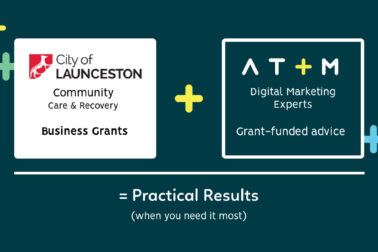In the ever-evolving landscape of business, adaptation is the key to success. The realm of marketing has seen a revolutionary transformation with the rise of automation. We will explore how this powerful tool is reshaping the way businesses connect with their customers. Join us on this journey as we uncover the myriad ways in which automation is revitalising the field of marketing and paving the way for a more efficient, data-savvy and customer-centric future.
What is Marketing Automation?

Marketing automation is a game-changing strategy that has transformed the way businesses interact with their customers. In a nutshell, it refers to the use of software and technology to streamline, automate, and measure marketing tasks and workflows. This innovative approach allows companies to nurture leads, engage with customers and analyse data more effectively and efficiently.
At its core, marketing automation leverages software solutions to execute repetitive marketing tasks, such as email campaigns, social media posting, lead scoring and customer segmentation. By automating these processes, businesses can save valuable time and resources, while simultaneously delivering more personalised and targeted messages to their audience.
Benefits and Role of Automated Marketing in Businesses

Personalisation
Marketing automation excels in personalising customer interactions, a key to retaining them in today’s competitive business landscape. It empowers businesses through:
- Segmentation: Tools divide the audience into groups based on criteria like demographics, purchase history and browsing behaviour. This enables precise content delivery, boosting engagement and conversion.
- Behavioural Tracking: Automation tracks customer behaviour on websites, emails, and social media, offering insights into individual interests for tailored content.
- Personalised Emails: Automation crafts personalised email content, increasing engagement with dynamic recommendations and subject lines.
- Product Recommendations: E-commerce automation suggests products based on past behaviour, enhancing the shopping experience and revenue through cross-selling and upselling.
Streamline Processes
Marketing automation isn’t just about personalisation and customer engagement; it’s also a powerful tool for streamlining and optimising marketing processes. Here’s how automation can bring efficiency to your marketing efforts:
- Repetitive Task Automation: Repetitive tasks such as sending emails, scheduling social media posts and lead scoring, can be automated. This frees up your team’s time for more strategic and creative activities.
- Lead Nurturing: Marketing automation allows you to create personalised lead-nurturing workflows. You can send automated emails at the right time and based on lead behaviour, gradually guiding them down the sales funnel.
Improved Customer Retention
Marketing automation plays a pivotal role in enhancing customer retention, a critical factor in sustaining business success. By leveraging automation, companies can foster deeper connections with their existing customer base. One key aspect is the ability to deliver personalised communication. Automation allows businesses to send tailored messages, product recommendations and exclusive offers to their current customers, making them feel valued and appreciated.
Loyalty programs are an area where automation can shine. Automation can efficiently manage loyalty programs by tracking customer behaviour and rewarding them for their continued patronage. It can also send reminders to customers about their earned rewards, encouraging them to redeem their points or benefits.
Prompt Customer Service
Prompt and efficient customer service is crucial for retaining satisfied customers. Marketing automation contributes to this by enabling swift responses and support. Automated email responses acknowledge customer inquiries immediately, settling expectations for a human follow-up. Automated service request routing ensures that customer issues are directed to the right department or representative swiftly, reducing wait times. This combination of automated tools ensures that customers receive timely attention and support, leading to increased satisfaction and loyalty.
Consistency
Consistency is a hallmark of successful businesses and marketing automation plays an important role in maintaining uniformity across marketing efforts. Here’s how it achieves this:
- Brand messaging: Automated marketing ensures that your brand remains consistent across various channels. Whether it’s email, social media, or your website, automation tools can deliver a coherent brand voice, helping customers recognise and trust your brand.
- Content Scheduling: With automation, you can schedule content publication in advance. This ensures that your marketing materials are released at planned intervals, reducing the risk of irregularities or gaps in your content calendar.
Scalability & Data-Driven Decisions
In today’s data-rich landscape, making informed decisions is paramount to achieving marketing success. Marketing automation empowers businesses to harness the power of data and analytics for strategic decision-making in several ways.
- Data Collection and Analytics: Automated marketing tools collect a wealth of data about customer interactions, from email open rates to website visits and purchase behaviour. This data is then analysed to gain valuable insights into customer preferences, trends and campaign performance.
- A/B Testing: Automation supports A/B testing, enabling marketers to experiment with different elements of their campaigns. This data-driven approach helps refine strategies by identifying what works and what doesn’t, ultimately optimising marketing efforts.
What are the Popular Types of Marketing Automation?

Email & SMS Marketing Automation
This simplifies the process of sending personalised emails, triggers responses and targeted content to nurture leads and enhance customer engagement. It enables businesses to create efficient email workflows that deliver the right message to the right audience at the right time, driving higher conversions and improving overall communication.
Klaviyo is a powerful marketing automation platform that will help you drive eCommerce growth by delivering a personalised customer experience. It is widely used on Direct-to-Consumer (DTC) e-commerce sites to help generate sales, though it is well suited for B2B. Klaviyo integrates with your e-commerce platform to capture events from your online shop. Klaviyo also provides powerful segmentation tools to slice and dice your customer and prospect lists based on their purchases and engagement with your online business. With this data, you can use Klaviyo to send personalised, relevant and timely messages via email or SMS. These messages may be delivered as one-off campaigns or by using automated flows.
Social Media Automation
this type of automation involves scheduling and managing social media posts, engaging with followers and monitoring social media performance. It streamlines social media management, ensuring consistent and timely communication with your audience. By automating these tasks, businesses can maintain a strong and active presence across various social platforms.
Analytics and Reporting Automation
These tools provide in-depth analytics and reporting on marketing campaign performance. They offer insights into customer behaviour, engagement rates, and conversion metrics. Marketers can make data-driven decisions based on this information, continuously optimising their strategies.
Conclusion

The era of automated marketing is upon us, and its impact is profound. This revolution promises to change not only how we reach our audience but also how we understand, engage and serve them. The future belongs to those who embrace these transformative tools and harness the power of automation to create consistent, data-driven, and personalised customer experiences.
As we conclude our exploration, it’s clear that automation is not just a trend but a fundamental shift that will shape the future of business. By adapting and evolving with these innovations, businesses can stay ahead in a dynamic and competitive market, connecting with customers like never before and achieving remarkable success.




